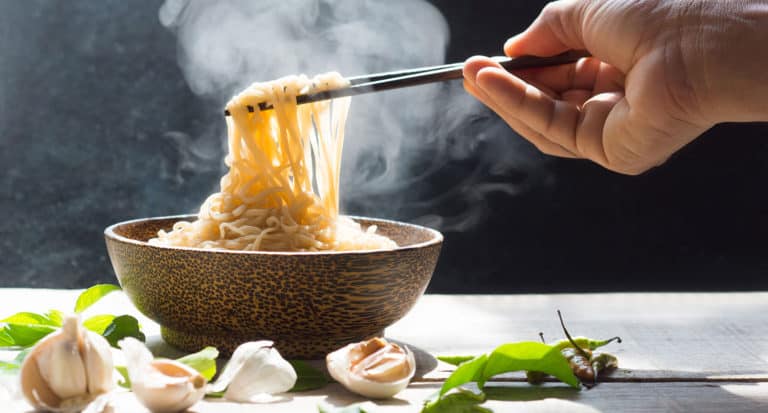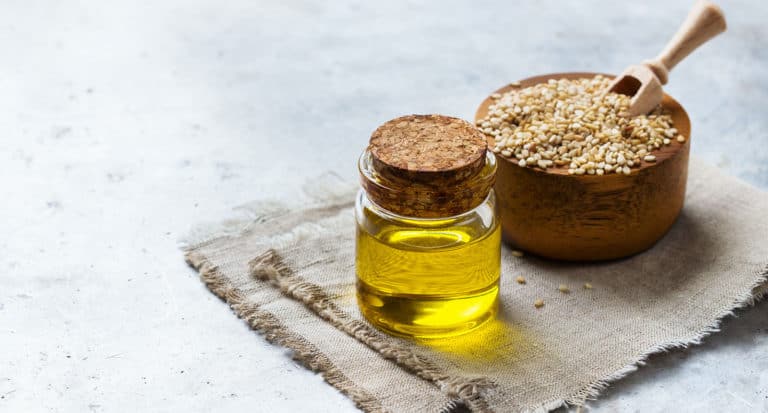Top 15 Best Miso Pastes
When you buy through our links, The Breslin may earn an affiliate commission. Learn more
Miso paste is a traditional Japanese ingredient for making miso soup – a healing soup that Japanese eat at least once a day.
Because of its health benefits, miso paste is becoming more and more popular and manufactured in large quantities.
Nowadays, people use miso paste for cooking many different dishes and also changing traditional ingredients to create new types of miso with more attractive tastes and for more people who are allergic to soybeans.
Let’s begin the journey to find out more about miso paste and its usage in daily cooking.
What Is Miso Paste?
Miso paste or Japanese soy sauce is made by fermenting soybeans, rice, and barley with salt and kōjikin. The final product will be a special paste used for making sauces, pickling vegetables, or cooking soup. Miso paste has a sweet or salty taste or both, sometimes with a slightly alcohol-like odor of fermented products.
Types of Miso Paste
If you are not miso paste expert, you can try to differentiate them based on their colors – the simplest and quite accurate way to choose the right kind of miso for your cooking.
White Miso (Shiro Miso)
White miso is made from fermented rice and soybeans. This type of miso has the shortest fermentation time and can be distinguished from other types by ivory to light yellow color.
Because of the short fermentation time, the taste of white miso is said to be the least salty of all kinds of miso. And also becoming increasingly popular and widely used in a variety of cooking recipes.
It is used for soups in general. With a low-salt quality, this miso is perfect for marinating fish. People often use it as a sauce or mixed in mashed vegetables for more flavor.
Yellow Miso (Shinshu Miso)
It’s miso paste that goes from dark yellow to light brown. This miso is usually made from all kinds of ingredients such as rice, soybean, and barley. This miso is saltier but not too salty and often used to make soup or bake vegetables. You should use this miso to marinate meat than fish, especially white meats like pork and chicken.
Yellow miso has a moderate amount of salt, therefore it is suitable for fermenting foods. Many delicious Japanese pickled vegetables are fermented in miso.
Red Miso (Aka Miso)
The color of this miso goes from dark red to dark brown. It is made mostly from soybeans, which is salty because of a long getting ready time. Red miso is suitable for stews that have a lot of meat and vegetables.
If you want to add umami flavor to your noodle, use red miso, it makes the juice richer without the use of seasoning. Apart from BBQ sauce or BBQ rub, you can also choose this product to marinate red meats such as beef and lamb.
You can find more information about 3 types of miso paste here:
The Health Benefits of Miso Paste
Miso paste is known as the Japanese healing traditional foods. It brings many health benefits as follows:
- Has all the essential amino acids, forming complete proteins
- Stimulating secretion of digestive juices in the stomach
- Restores beneficial gut bacteria
- Help digest and assimilate food in intestines
- Good source of plant B vitamins (especially B12)
- Enhancing blood quality and lymphatic fluid
- Strengthen the immune system and help reduce LDL cholesterol
- There are many antioxidants that protect against free radiation
Which Are The Best Miso Pastes?
In this list, I highlight some best miso paste and their particular characteristics. Let’s go through these products before deciding.
- Best Overall – Miko Brand Soybean Paste Shiro Miso
“…affordable and versatile, which make it the best choice for miso lovers.” - Best Budget – Roland White Miso Paste
“Gently sweet and slightly salty taste for different dishes as well as affordable for family use.” - Best White Miso – Hikari Organic Miso Paste
“A high volume of rice koji culture produces its mild taste and smooth texture, which makes it a perfect white miso paste.” - Best for Organic Miso – Namikura Shiro Miso
“Artisanal products from the stage of selecting ingredients to packaging products, rich flavor and fine texture, organic and Kosher OU certified miso paste.” - Best for Soup – Ishino Miso Kaiseki White Miso
“Owing to its sweetness, you can add this miso paste to your soup as an ideal ingredient of flavor as well as a source of nutrients.” - Best Red Miso – Maruman Organic Red Miso
“Made in Japan, strong flavors for strong aroma foods, make a lot of healthy dishes with this miso paste.” - Best for Low-Sodium Diet – Honzokuri Low Salt Miso
“Containing 690 mg of sodium per serving which can be considered less than other yellow miso in the market. Therefore, you can add it to salad dressing you crave and don’t have to worry too much about your intake of sodium.” - Best Japanese Miso – Marukome Reduced Sodium Organic Miso
“Made by Japan’s largest miso producer, 100% organic, non-GMO, gluten-free, and vegan with yummy, mild, and delicate flavor.” - Best Miso with Dashi – Miko Awase Miso Soyabean Paste (Aka + Shiro)
“…something in between, more balanced, together with the rich flavor from bonito extract, this miso paste is favored by miso lovers.” - Best Floral Flavor Miso – Namikura Yuzu Miso Aged 3 Months
“Adding yuzu in traditional ingredients of miso and let it be fermented for 3 months straight makes Namikura Yuzu miso has special floral, light, tangy, and tasty flavor.” - Best for Seasoning – Marukome Miso Easy Original
“…Rich, flavorful, and fluid miso paste.” - Best for Soy Allergy – Miso Master Chickpea Organic
“Miso Master has come up with a new miso paste made from organic chick peas. It tastes as good as traditional miso. Now everyone can make their own miso soup without worrying about food allergy.” - Best for Making Dips – Red Shell Miso Dressing
“Creamy, tangy, and tasty miso for making delicious veggie dips.” - Best for Stews – CJ Haechandle Jaeraesik Soybean Paste
“This bold tasting miso is the best miso option for stews because the stew requires dense and rich in flavor broth.”
Miso Paste Comparison Chart
Before going into the reviews of each miso paste products I have selected for this article, it’s important to notice the difference between them.
Top 15 Best Miso Paste Reviews
It’s time to look closely at 15 best miso paste products that I have chosen. Here are the pros, cons, and my personal experience with each product. I hope to help you have more considerations before deciding to select your own miso paste brand.
1. Miko Brand Soybean Paste Shiro Miso
(Best Overall)

For vegetarians, they are no stranger to miso paste. It can be said that this is an ingredient that will make your eating experience more interesting and healthy.
Miko Brand Soybean Paste Shiro Miso is made from non-GMO soybeans and salt. It’s perfectly used for adding to a variety of foods, from soups to marinades.
This white miso tastes sweet and salty, which enhances the flavor of the dishes without having to add any seasoning.
This miso comes as a 35.2 oz bag instead of a plastic container with lid as many people wish for. Due to its packaging, I fold it over with a clip and store it in the refrigerator after use to keep it last longer.
Miko Brand Soybean Paste Shiro Miso is affordable and versatile, which makes it the best choice for miso lovers.
Key features
- Stored in 35.2 oz bag
- Sweet and salty
- Versatile miso paste
- Product of Japan
Pros
- It’s non-GMO Soybean used, and no MSG added
- This miso is quite affordable
Cons
- Packaging needs to be improved for convenient use and store
Product Specifications
| Item Weight | 2.25 pounds |
| Brand | Miko Brand |
| Type | White miso paste |
| Ingredients | Water, soybean, rice, salt, alcohol to preserve freshness |
| Ideal for | Miso soup and marinade |
2. Hikari Organic Miso Paste
(Best White Miso)

This white miso is made of USDA certified organic rice & soybeans. It’s also non-GMO, gluten-free and all-natural without any additives.
You may notice it has the distinctive yellow color of Shishu miso paste.
A large quantity of rice koji culture produces its mild taste and smooth texture. I can do lots of different things with this miso paste.
For example, making miso soup with dashi broth and some fish or shrimp and vegetables or mixing it with many other ingredients to make a sauce to drizzle on meat and vegetables.
Either way, miso paste makes delicious dishes in a simple way you can’t imagine.
Key features
- Sweet and tasty flavor
- Versatile
- Product of Japan
Pros
- It’s 100% Organic, Non-GMO and Gluten-free
- Free of additives, harmful ingredients and no MSG added
Cons
- There are some problems with packaging products
Product Specifications
| Item Weight | 1.1 pounds |
| Dimension | 4.8 x 4.8 x 3.6 inches |
| Brand | Hikari |
| Type | White miso paste |
| Ingredients | Water, organic soybeans, organic rice, salt, yeast, koji culture |
| Ideal For | Dressings, soup |
How to make miso ginger dressings. Just watch this video below:
3. Namikura Shiro Miso
(Best for Organic Miso)

This product is made by a long history family-owned company in Japan, which is now the 5th generation and is said to be artisanal products from the stage of selecting ingredients to packaging products.
Namikura Miso is favored in Japan because of its distinctive quality: rich flavor and fine texture. It’s organic and Kosher OU certified.
Due to its special process, this white miso tastes less salty than other miso in the market (It has 1.5 to 2 times as much white rice koji as cooked soybeans). It’s suitable for making soup, dressing and especially very good for creating your own delicious marines for fish dishes. I definitely purchase it again.
Last but not least, you should store it in the refrigerator after opening.
Key features
- Product of Japanese family-owned company
- Special taste and texture
- Rich in flavor
Pros
- It’s Certified Organic and has Kosher OU
- This miso is good for making fish marinades
Cons
- Some think its color is too brown for calling it white miso
Product Specifications
| Item Weight | 2.2 pound |
| Dimension | 9 x 3 x 6 inches |
| Brand | Namikura |
| Type | Organic white miso paste |
| Ingredients | Water, organic whole soybeans, organic white rice koji, sea salt |
| Ideal for | Soup, dressing, marinade |
A Japanese recipe for miso-marinated fish.
4. Ishino Miso Kaiseki White Miso
(Best for Soup)

If you are looking for healthy miso paste for daily soup, Ishino Miso Kaiseki White Miso paste is all you need.
Owing to its sweetness, you can add this miso paste to your soup as an ideal ingredient of flavor as well as a source of nutrients.
I have to highlight that the sweetness of this miso is much more than the white miso of the same kind, so it definitely adds a rich flavor to the dishes you are going to cook.
Ishino especially recommends it for Zoni soup, known as a traditional Japanese new year mochi soup, which requires flavorful broth together with a variety of toppings.
Moreover, this product is widely used in Michelin starred restaurants all over the world.
It lasts only 90 days from the date of opening.
Key features
- White miso paste
- Light yellow color
- Taste sweet
- Packaged by plastic container
- Expired 90 days from the date of opening
Pros
- It’s great for soup especially Zoni soup
- This miso is favored by Michelin starred restaurants
Cons
- The shelf-life time is quite short
Product Specifications
| Item Weight | 1.1 pounds |
| Dimension | Not specific |
| Brand | Ishino |
| Type | White miso paste |
| Ingredients | Water, rice, soybeans, salt, alcohol, koji (barley) |
| Ideal for | Soup, salad dressings, seafood marinades |
Want to make your own Zoni soup. Watch this:
5. Maruman Organic Red Miso
(Best Red Miso)

This wonderful quality miso paste is made in Japan. It’s also 100% organic certified in Japan, not in the US.
This red miso has a lot of favors that will satisfy your taste if you love strong aroma foods.
You can make lots of healthy dishes from this miso paste. There are some simple and yummy yet popular recipes, for example, miso soup or miso dips.
Because of its saltiness, you can keep it in the refrigerator for a long time without worrying about being spoiled.
And you just need to use a small amount of this red miso to create the flavor you want. Don’t put too much if it’s your first time trying red miso.
Key features
- Product from Japan
- Packed in sealable container
- Rich in flavor and nutrients
- Very salty
Pros
- Certified organic red miso paste
- Strong and salty taste for strong aroma foods
Cons
- The package arrived damaged sometimes
Product Specifications
| Item Weight | 1.65 pounds |
| Dimension | 4.5 x 4.4 x 3.5 inches |
| Brand | Maruman |
| Type | Red miso paste |
| Ingredients | Water, soybeans, salt |
| Ideal for | Soup |
6. Marukome Reduced Sodium Organic Miso
(Best Japanese Miso)

Marukome Co. is Japan’s largest miso producer. They sell their miso worldwide so you can trust company’s reputation and product quality.
If you need to watch your sodium intake for some health reasons, you could choose this Marukome reduced sodium organic miso, which is cut down 25% of sodium per serving compared to the original miso paste.
Although the amount of salt is reduced, the taste of the product remains unchanged and is still very good for cooking a variety of dishes. It has a yummy, mild, and delicate flavor in case you want to know.
This miso is 100% organic, non-GMO, gluten-free, and vegan. It’s recommended to keep in the refrigerator to last longer.
Key features
- Product of Japan
- Trusted brand
- Taste less salty
- Tasty flavor
Pros
- Certified USDA organic, non-GMO, gluten-free and vegan
Cons
- Some products arrived with mold on top and sour taste
Product Specifications
| Item Weight | 13.3 ounces |
| Dimension | Not specific |
| Brand | Marukome |
| Type | Certified organic miso |
| Ingredients | Organic rice, organic soybeans, organic alcohol, filtered water, and organic salt |
| Ideal for | Soups, dips |
7. Honzokuri Low Salt Miso
(Best for Low-Sodium Diet)

This yellow miso contains 690 mg of sodium per serving which can be considered less than other yellow miso in the market.
It’s for people who are pursuing low-salt diets but still fall in love with the flavor and many other health benefits of miso.
You can incorporate it into your daily diet without much concern about affecting your overall salt consumption and I still recommend you oversee your sodium intake carefully to make sure that.
It’s made from soybeans, rice, water, salt with no MSG.
The package includes some cooking recipes for each season in a year.
Last but not least, you should store it in the refrigerator after opening to keep it fresh.
Key features
- Product of Japan
- Yellow miso paste
- Contains 690 mg of sodium per serving
- Taste less salty
Pros
- No-MSG added
- There are some cooking recipes available on the label of the product
- Good for low-salt diets
Cons
- Some arrived damaged seriously
Product Specifications
| Item Weight | 1.9 pounds |
| Dimension | Not specific |
| Brand | Honzokuri |
| Type | Yellow miso paste |
| Ingredients | Water, soybeans, rice, salt |
| Ideal for | Making healthy foods especially when you are on a diet |
8. Roland White Miso Paste
(Best Budget)

Because this miso is white miso, it has a gently sweet and slightly salty taste, which is suitable for adding into a variety of your favorite dishes. Roland white miso is also for people who are new to this Japanese ingredient.
This white miso comes in a plastic bag with a larger quantity than I have imagined for the price it costs. If you are living with your family, Roland white miso paste is one of the affordable choices.
It will make you and your family a wonderful broth for miso soup – a Japanese healing soup. Besides you can make fish and meat marinades, dressings, soups…
Like other traditional miso, this miso is made from water, soybeans, rice, salt, alcohol and is gluten-free.
Key features
- Product of Japan
- White miso paste
- Mildly salty and sweet taste
- Versatile
Pros
- It’s vegan, gluten-free, and non-GMO
Cons
- Some clients claim its brown color proves that it’s not white miso
Product Specifications
| Item Weight | 2.2 pounds |
| Dimension | 15 x 9.8 x 7 inches |
| Brand | Roland |
| Type | White miso paste |
| Ingredients | Water, soybeans, rice, salt, and alcohol |
| Ideal for | Making soup, dressings, marinades |
9. Miko Awase Miso Soyabean Paste (Aka + Shiro)
(Best Miso with Dashi)

If you are a fan of miso and rather than buy many kinds of miso at home, you can choose to buy awase miso, which is the combination of red and white miso.
Red miso (aka miso) has long fermentation time and very salty, pungent flavor. Meanwhile, white miso (shiro miso) often tastes mildly salty and slightly sweet. Awase miso is something in between, more balanced and is favored by miso lovers.
This Miko awase miso is brown in color with quite smooth texture, non-GMO with no MSG.
Besides, I can use it for seasoning the delicious rice from my good Japanese rice cooker then stir-fried and also making some super delicious miso soups.
It contains bonito extract; therefore, it’s not for ones who are on a vegan diet.
Key features
- Product of Japan
- A trusted company with consistent quality
- Comes in a thin plastic container
- Tasty miso paste
- Contains (kind of ocean fish)
Pros
- It’s Non-GMO and No MSG
- Suitable for making a lot of Japanese-style dishes
Cons
- Some don’t like how it tastes
- It’s not vegan
Product Specifications
| Item Weight | 1.1 pounds |
| Dimension | 4.5 x 4.4 x 3.4 inches |
| Brand | Miko Brand |
| Type | Red + White miso |
| Ingredients | Soybeans, rice malt, salt, alcohol, riboflavin |
| Ideal for | Seasoning |
Miso glazed eggplant with awase miso:
10. Muso From Japan Smart Miso Brown Rice

Miso paste has long been used as a traditional ingredient for Japanese foods because it delivers a lot of health benefits and energy.
I often buy miso from family-owned brands because they tend to maintain the traditional method of fermenting miso to help preserve the original flavor. Muso from Japan is one of them. Their miso pastes are known for rich and umami taste.
This miso, I am talking about now, is made from brown rice, soybeans, sea salt and is packaged creatively. From outside, it looks like fruit juices or nutrition gel squeeze pack and it can stand. Therefore it’s also called standing miso paste.
The package design allows customers to easily use, control amount of miso usage, and store it.
Key features
- Product from Japan
- Made from brown rice
- Packed with plentiful of nutrients
- Great source of protein
- Naturally aged
- Shelf stable (refrigerate after opening)
Pros
- Non-GMO, no MSG and vegan
- Clean and easy to use
- It has no additives
Cons
- The price is quite high
Product Specifications
| Item Weight | 5.3 ounces |
| Dimension | Not specific |
| Brand | Muso from Japan |
| Type | Miso paste |
| Ingredients | Whole soybeans, water, brown rice, sea salt |
| Ideal for | Adding to your favorite foods as spreads, dressings, marinades |
How to make wasabi miso from Muso from Japan for spicy veggie dipping sauce:
11. Namikura Yuzu Miso Aged 3 Months
(Best Floral Flavor Miso)

A new breeze for the taste of traditional miso has been made successful by Namikura. It’s made from organic white rice koji, organic whole soybeans, yuzu fruit, yuzu zest, and sea salt.
In case you are wondering, yuzu is an expensive, rare fruit related to citrus from Japan and often used as a flavor for everything from beer and chewing gum to cocktails. Interestingly, the Yuzu is one of the few citrus fruits in the world that can hold and maintain its sour and bitter taste even when cooked at high temperatures. Yuzu has a blended flavor of orange, tangerine, and grapefruit.
Adding yuzu in traditional ingredients of miso and let it be fermented for 3 months straight makes Namikura Yuzu miso has special floral, light, tangy, and tasty flavor.
Moreover, it’s less salty than other miso in the market. Therefore you can use it to make salad dressings, spreads, and fish marinades.
Key features
- It has been fermented for 3 months
- This miso ingredient includes yuzu fruit and yuzu zest
- Family-owned company
- It has floral, light, tangy and tasty flavor
Pros
- It tastes less salty than other miso
- You can add it to a variety of dishes
Cons
- The color of the miso is somewhat darker than I thought
Product Specifications
| Item Weight | 1.2 pound |
| Dimension | Not specific |
| Brand | Namikura |
| Type | Yuzu miso paste |
| Ingredients | Organic White Rice Koji, Organic Whole Soybeans, Yuzu Fruit, Yuzu Zest, Water, Sea Salt |
| Ideal for | Making salads dressings, dips, marinades |
Seared salmon with yuzu miso:
12. Marukome Miso Easy Original
(Best for Seasoning)

This miso is stored in a plastic bottle like a ketchup one with a lid. Just open the lid and pour the miso to your dishes very easily and conveniently when cooking. This miso is especially suitable for seasoning foods and creating a distinctively Asian flavor for your meals.
It contains bonito powder; therefore, it makes rich and flavorful miso broth for your miso soup without adding any ingredients.
Because of its liquid form, you can make quick meals when in a rush. This miso blends very well with warm water and other ingredients to shortening your cooking time and still taste delicious.
Key features
- It’s stored in a plastic bottle which makes it easy to use
- Go well with many food ingredients in no time because of its liquid texture
Pros
- This miso tastes good
- It’s non-GMO, also gluten-free with no MSG
- It contains bonito, so it’s not suitable for vegan
Cons
- Some customers claim that their miso have alcohol taste
Product Specifications
| Item Weight | 12 ounces |
| Dimension | 3 x 5 x 6 inches |
| Brand | Marukome |
| Type | Miso paste |
| Ingredients | Filtered Water, Soybeans, Rice, Sea Salt, Alcohol), Filtered Water, bonito fish powder |
| Ideal for | Adding to soup and seasoning |
13. Miso Master Chickpea Organic
(Best for Soy Allergy)

Although soybeans are traditional ingredients to make miso paste, many people are allergic to them. That’s why Miso Master has come up with a new miso paste made from organic chickpeas.
It tastes as good as traditional miso. Now everyone can make their own miso soup without worrying about food allergy.
Miso Master Organic Chickpea Miso has less salt and more rice koji than traditional misos.
This is the reason why it has a mildly salty and lightly sweet taste, which is suitable for making a lot of dishes.
Because of the short fermentation time only 30 to 60 days, the actobacillus bacteria in the miso paste will continue their cycles until the products reach the buyers’ hands and are more active than those of the miso which has a long aging time.
Therefore Chickpea miso is really good for digestion.
Key features
- Made in USA
- Short aging time
- Shelf life about 18 months
- It should be kept in refrigerator after opening
- Versatile
Pros
- It’s 100% organic, Non-GMO, vegan and gluten-free
- No artificial sweetener, flavors, colors or chemicals.
- Good for digestion
- Kosher
Cons
- Because of its light and less salty flavor, some don’t think it has original miso taste
Product Specifications
| Item Weight | 1 pound |
| Dimension | Not specific |
| Brand | Miso Master |
| Type | Chickpea miso |
| Ingredients | Organic handmade rice koji, organic whole chickpeas, sun-dried sea salt, Blue Ridge Mountain well water, koji spores. |
| Ideal for | Making dressings, dips and marinades |
Find out how to make chickpea miso at home:
14. Red Shell Miso Dressing
(Best for Making Dips)

If you’re lazy cooking some miso soup and still want to add its flavor to your daily foods then Red Shell miso dressing is your ideal option.
It’s the delicious blend of soybean paste, rice vinegar, whole eggs, lemon juice, salt, sugar which will bring a little tangy, and sour to your dishes.
I’d love to use it as a dipping sauce for veggies. Some prefer using it as quick sandwich condiments. It’s also tasty as salad and grilled meat dressings.
This Red Shell miso dressing should be kept in the refrigerator after opening.
Key features
- Creamy miso dressing
- Tangy and tasty flavor
- Sugar included
- Great for dressings and dips
Pros
- It has no MSG added
- This miso dressing is totally vegan
Cons
- It contains sugar
- It’s quite pricey because it’s used up very quick
Product Specifications
| Item Weight | 2.8 pounds |
| Dimension | Not specific |
| Brand | Red Shell |
| Type | Blended miso paste |
| Ingredients | Soybean Oil, Rice Vinegar, Soybean Paste (Soybeans, Water, Rice, Salt), Vinegar, Water, Sugar, Corn Sweeteners, Whole Eggs, Lemon Juice, Salt, Spices, Citric Acid, Natural Flavors, Xanthan Gum, Propylene Glycol Alginate and Calcium Disodium EDTA Added to Protect Flavor. |
| Ideal for | Dressing and dipping |
15. CJ Haechandle Jaeraesik Soybean Paste
(Best for Stews)

This miso is made from Korea by traditional fermentation method which makes sure to produce the best miso in flavor and color. Haechandle soybean paste (Doenjang) has rich aroma of soybeans and sweet aftertaste.
For miso lovers, this Korean miso has a different taste compared to miso from Japanse. Therefore you need to pay attention to choose the right kind for your dishes.
Korean miso is great for cooking Korea-styled foods. This bold tasting miso is the best miso option for stews because the stew requires dense and rich in flavor broth to be able to add flavor to the vegetables and meats.
The texture of this miso is a little bit grainy.
Key features
- Bold and strong flavor
- Grainy texture
- Product of Korea
- Great for Korean dishes, especially stews
Pros
- HACCP certified
- No preservatives and no artificial colors
Cons
- Some people think it tastes nasty
Product Specifications
| Item Weight | 1.1 pounds |
| Dimension | Not specific |
| Brand | CJ |
| Type | Miso paste |
| Ingredients | Soybean, wheat flour, salt, soybean powder, wheat grain, seed malt, cooking rice wine, defatted soybean, disodium 5′-inosinate, disodium 5′-guanylate |
| Ideal for | Stews |
Doenjang-jjigae stews. Let’s explore:
Buying Guide
I am a fan of miso paste, and I have bought from several miso brands. Here are some buying guides that I think you’re interested in.
Type
As I have said above, there are three basic types of miso pastes: white, yellow and red. If you are new to miso, I recommend that you should choose white miso at first because of its versatility.
You can add white miso paste to almost every dish from soup to salad dressings or stir-fries. The dishes can’t go wrong with white miso, because its flavor is very lightly salty, mild, and sweet.
Once you’re familiar with miso flavor, you can try adding yellow or even red miso to your recipes.
Taste
Miso from Japan has a different taste compared to that of Korea.
Red miso is the saltiest type of miso. If you have to watch out of your sodium intake every day, I think you should carefully select the miso paste with sodium cut down. Look at the amount of sodium on nutrition fact label and decide the miso paste suitable for your health.
If the sodium per serving is less than 690mg (for example, Marukome reduced sodium miso paste has only 500 mg sodium per serving), it’s considered low sodium miso paste.
Some miso paste goes with dashi, bonito extract. Therefore, it’s ready to make a good miso soup without adding any ingredients.
There is a variety of miso paste combinations available in the market, such as miso paste from chickpea, miso paste from brown rice,…etc. It’s up to you to choose the right kind for your taste and health benefits.
FAQs
If you are new to miso paste, you might have some questions about it. Here I sum up five popular questions and answers for your reference.
My Top Pick
I often have less time to prepare breakfast, so miso paste is extremely convenient to be able to cook a delicious bowl of noodles in just a few minutes, not to mention the health benefits it brings to me every day.
Lastly, I hope that my best miso paste reviews will help you find some miso brands to start with.
And my choice is Miko Brand Soybean Paste Shiro Miso for its tasty flavor and versatility.
What about you? You are welcome to share your experiences with miso paste for better dishes.








I’m a lousy cook but I think this is going to help me out a lot. And I know I’ll start feeling better after being run down from a typical American junk food binge. Thank you so much for your helpful information. I can welcome your emails.
Dear Georgia,
First of all thanks for contacting me.
I am very happy to hear that my work is consistently useful and it actually changes people’s lives in good.
Have a wonderful day and stay safe.
Loves, Amanda.